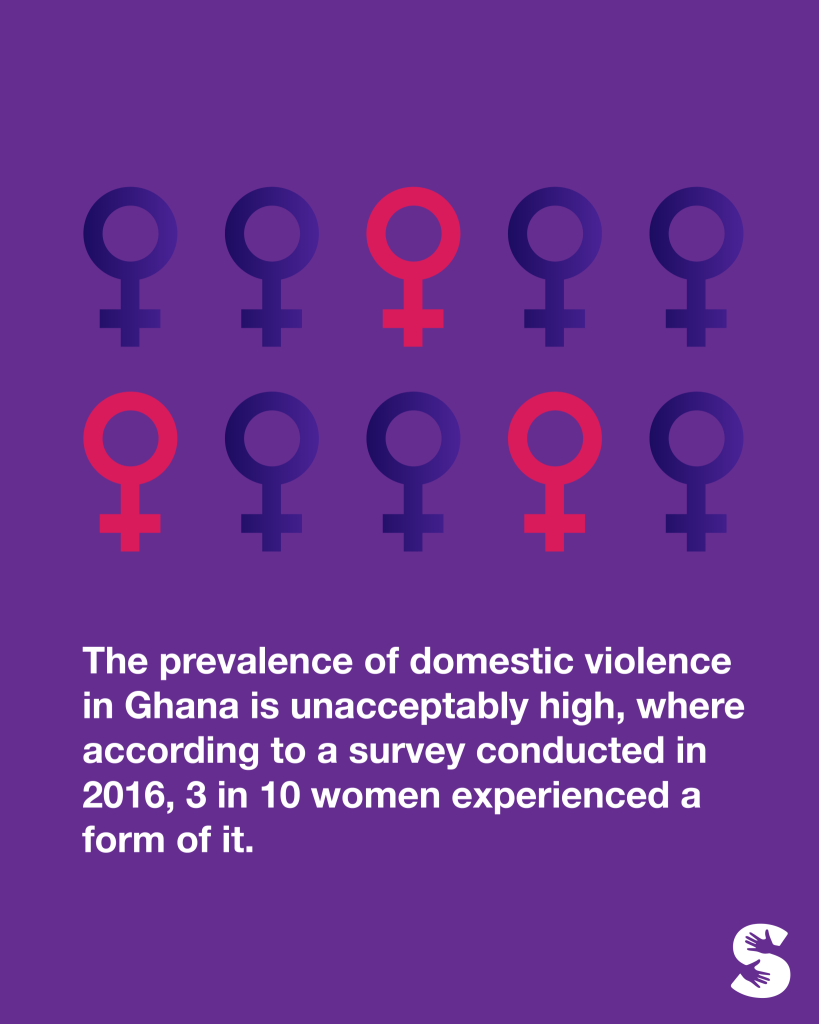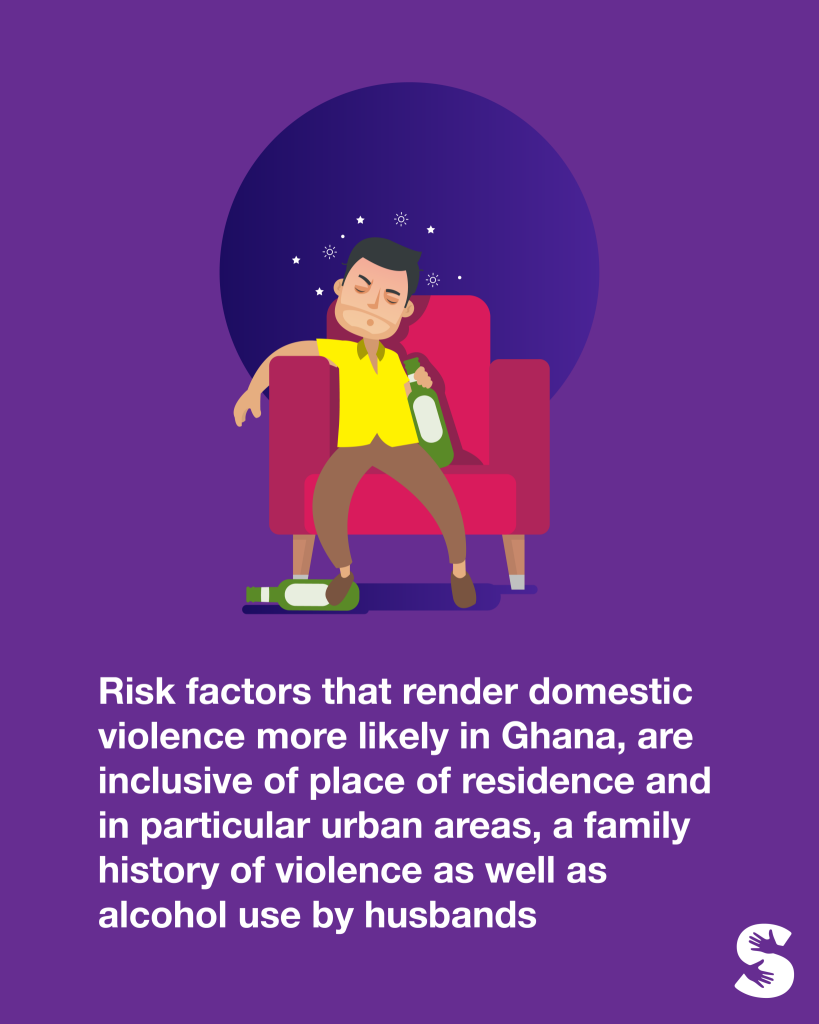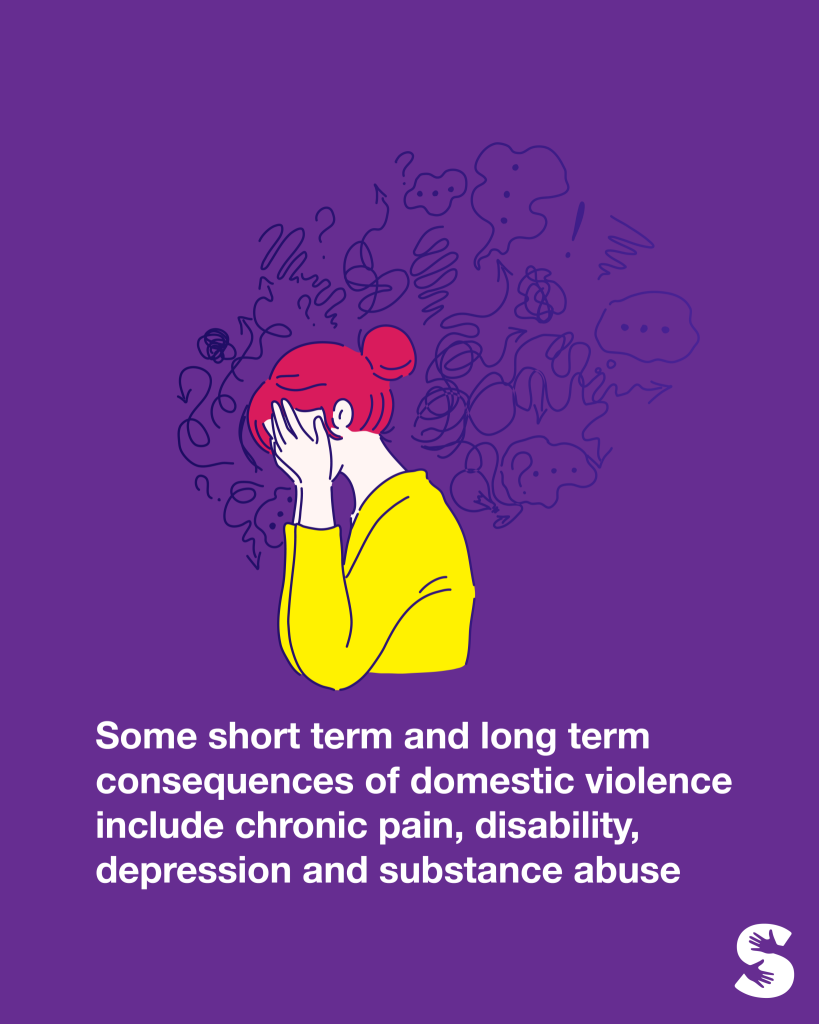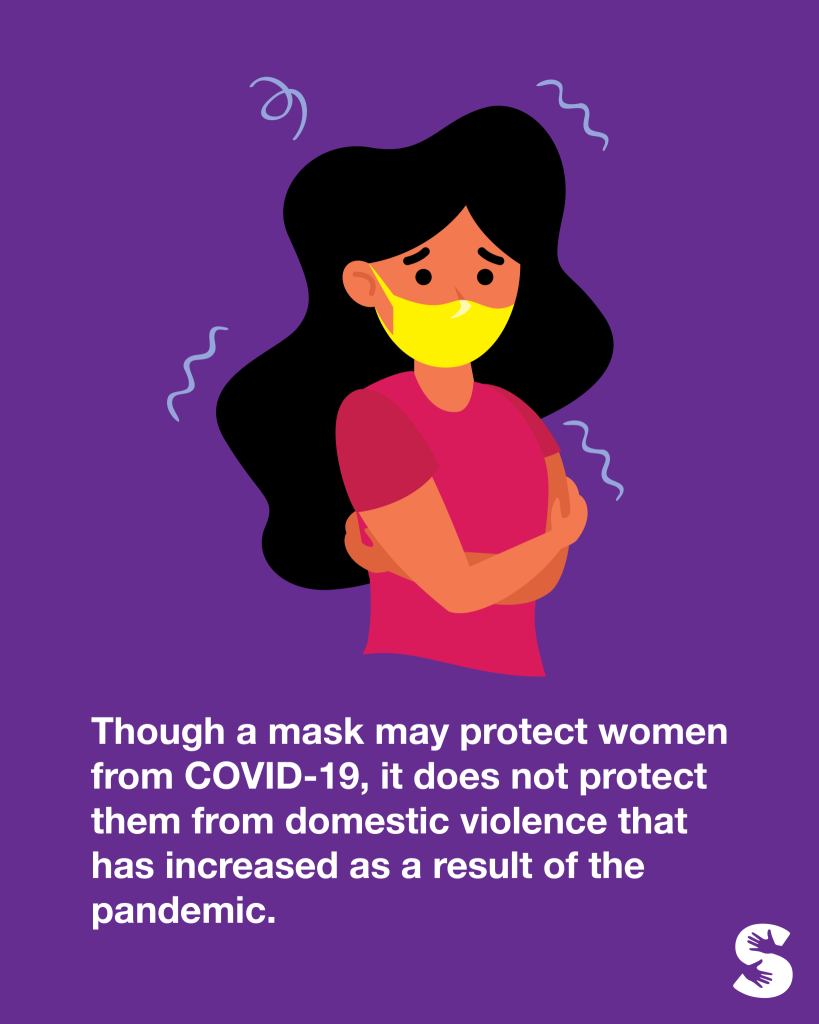
THE PERILS OF QUARANTINE: COVID-19 AND DOMESTIC VIOLENCE
by Maryam Fatima

The COVID-19 pandemic has disrupted our world and lifestyles in ways unimaginable. Many of us have been confined within the boundaries of our home, working remotely or reaping the benefits of government programs to alleviate financial distress. This is a privilege in itself, to have government support, be free from disease, ultimately work from the couch and of course, spend countless hours on Netflix.
Yet, there are a large number of individuals and families locally and globally who are disproportionately impacted by the conditions of the pandemic inclusive of minorities, women, children and the elderly. Of course, many have been victims to the disease itself but directly and indirectly the pandemic has destroyed livelihoods and have left many in positions of extreme difficulty, from financial distress, ill physical health and disease, suffering mental health and even death. Furthermore, the conditions of lockdown and quarantine have forced people to stay at home, exacerbating existing domestic issues such as violence against women.
Domestic violence refers to different types of violations that occur in a domestic space and encompasses violence or abuse that is perpetuated by a partner or family member1. Domestic violence is an issue that exists across the world regardless of culture, race, ethnicity and age2. It has been estimated that over 50% of women globally have been victims of domestic violence3. Domestic violence is a violation of human rights and in particular, violence against women is the most prevelant yet least recognized human rights violation in the world4,5. The prevalence of domestic violence in Ghana is unacceptably high, where according to a survey conducted in 2016, 3 in 10 women experienced a form of it.
In Ghana, married women are particularly at risk of domestic violence because they are socialized into believing that marriage grants the right of sexual access to husbands, regardless of how violent1. Risk factors that render domestic violence more likely in Ghana, are inclusive of place of residence and in particular urban areas, a family history of violence as well as alcohol use by husbands6. There are numerous health problems that are associated with domestic violence that have the potential to destroy both the physical and mental health of women. Some short term and long term consequences of domestic violence include chronic pain, disability, depression and substance abuse4.
Domestic violence can take the form of physical, sexual or emotional abuse. Regardless of the form, women suffer tremendously. This harsh reality for many women around the world has been a precursor to some serious mental health issues from depression, trauma symptoms and self harm7.
Though, mental health services could play a significant role in preventing violence against women, there are tremendous barriers to accessing such services especially for Ghanaiain women. Perhaps the biggest challenge in accessing mental health services in Ghana is that mental health services are limited due to insufficient government funding as it remains a low priority8. As a result, the cost of accessing such services are high and are not affordable for most Ghanaiain women. Additionally, mental illness is heavily stigmatized in Ghana.This widespread negative stigma and discrimination surrounding mental illness even extends to health care providers themselves in addition to community members8. The reluctance of community members and health professionals to recognize mental illness poses further challenges for women seeking support. In fact, women are often shamed into staying silent as a form of normalizing domestic violence or blaming the victim. Fear of seeking support is also derived from the stigma surrounding divorce and potentially more intense consequences by family members or abusers.



Additionally, the conditions of lock down have forced people to stay at home. However, it is important to understand that ‘home’ is not necessarily the safest place for everyone. This is because home is a place where power dynamics have the potential to be distorted and abused without scrutiny from others beyond the family unit2. Thus, staying at home during the pandemic has the potential to actually worsen the mental health of women and in particular Ghanaiain women who were already worse off before the pandemic in terms of physical health, abusive family members and financial distress on top of the feelings of loneliness that the pandemic brings. Though a mask may protect women from COVID-19, it does not protect them from domestic violence that has increased as a result of the pandemic.
Given how disproportionately the pandemic affects women in Ghana, with the lens of domestic violence and poor health outcomes, governments must take the responsibility to ultimately reevaluate the needs of communities and in particular the needs of women. Catering and responding to the unmet needs of women in a culturally responsive manner through the provision of mental health, physical health and social services is absolutely critical 8. This requires significant transformations to the Ghanaian health care system so they are better equipped to address and deal with mental health issues. Though quality healthcare services are no doubt important and critical, empowering multiple stakeholders to supplement health services through support groups, hotlines and women’s shelters is equally important in addressing the mental health needs of women in Ghana. Efforts must also be focused on prevention, where education plays a fundamental role in dismantling norms regarding domestic violence, breaking cycles of dependence and ultimately empowering both men and women.
Regardless of where we reside, we must recognize the worldwide issue of domestic violence that is both mentally and physically destroying the health of women. Knowledge is power, and understanding the high prevalence of this issue is the first step towards positive transformation.

REFERENCES
- 1. Bradbury‐Jones C, Isham L. The pandemic paradox: The consequences of COVID‐19 on domestic violence. Journal of clinical nursing. 2020 Apr 12.
- 2. Tenkorang EY, Owusu AY, Yeboah EH, Bannerman R. Factors influencing domestic and marital violence against women in Ghana. Journal of Family Violence. 2013 Nov 1;28(8):771-81.
- 3. Kishor S, Johnson K. Profiling domestic violence: A multi-country study. MEASURE DHS+, ORC Macro; 2004.
- 4. Heise L, Ellsberg M, Gottmoeller M. A global overview of gender-based violence. International Journal of Gynecology & Obstetrics. 2002 Sep 1;78:S5-14.
- 5. International Center for Research on Women (2009). Intimate Partner Violence: High cost to households and communities. A publication of UNFPA. Retrieved from https://www.icrw.org/wp-content/uploads/2016/10/Intimate-Partner-Violence-High-Cost-to-Households-and-Communities.pdf
- 6. Adjah ES, Agbemafle I. Determinants of domestic violence against women in Ghana. BMC public health. 2016 Dec;16(1):1-9.
- 7. Humphreys C, Thiara R. Mental health and domestic violence:‘I call it symptoms of abuse’. British journal of social work. 2003 Mar 1;33(2):209-26.
- 8. Doku V, Ofori-Atta A, Akpalu B, Osei A, Read U, Cooper S, MHaPP Research Programme Consortium. Stakeholders’ perceptions of the main challenges facing Ghana’s mental health care system: A qualitative analysis. International Journal of Culture and Mental Health. 2011 Jun 1;4(1):8-22.





